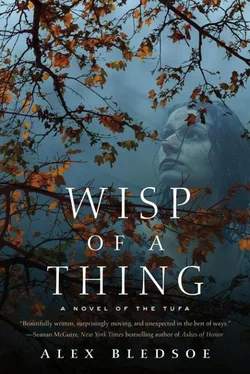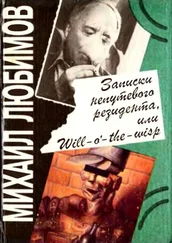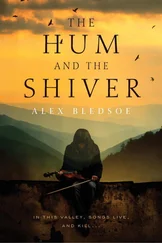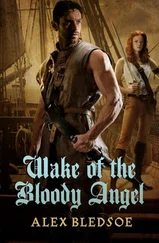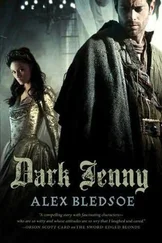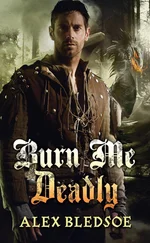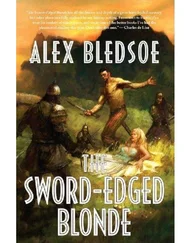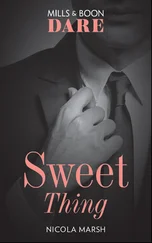“Always a pleasure, never a chore,” he said with a smile. “Y’all have a good time.”
They entered to the right of the bandstand. A pile of guitar, fiddle, dulcimer, and other instrument cases rested against the wall, and Bliss propped hers among them. She leaned close and yelled in Rob’s ear, “It’s okay to leave your guitar here!”
Rob nodded, a bit overwhelmed. The building’s interior seemed bigger inside than it had appeared outside, like a hillbilly TARDIS. Bright overhead lights hung from wires spaced among the wooden crossbeams. Stacked in a stairstep fashion and covered with blankets, hay bales provided rough bleacher-style seating. The band riser was made of old shipping pallets covered with particle board.
At least three hundred people were crammed inside. They lined the walls and covered the hay bale bleachers, while perhaps a third of the crowd filled the hard-packed dirt dance floor in the center. Couples danced in old-style formality, but some individuals also flatfooted on pieces of wood just like the girl outside. And everyone sported the “Tufa look”—dark hair, dark skin, and seemingly perfect teeth.
“How often do you do this?” Rob hollered into Bliss’s ear.
“There’s something going on here most nights,” Bliss called back. “Lots of people still don’t have cable or the Internet. This is what they do instead.”
He followed her around the dance floor. They all seemed to know Bliss; she waved, smiled, hugged, and shook hands with almost everyone they passed. Rob was sure she introduced him to a dozen people, but he couldn’t hear a thing over the music and crowd noise. When they reached the hay bleachers, they sat with the cooler between them. He’d never seen anyone look so at home, so happy, as Bliss did at that moment.
The song finished, and the crowd applauded both the musicians and the dancers. The flatfooters held hands and bowed in a group: hefty men, skinny boys, and hard-looking women in long dresses. They gathered their boards and left the dance floor. Some of the musicians left the stage, and new ones took their place.
The squat little bandleader, who held a guitar that his stubby arms could barely reach, said, “Thank y’all. Hey, if you see a banjo player on one side of the road and an accordion player on the other, which do you run over first?” He paused for effect. “The accordion player. Business before pleasure.”
The crowd laughed good-naturedly, while both the banjo and accordion players pretended to beat the man with their instruments.
“Play ‘The Seven Nights’ Drunk’!” someone called.
“Naw, not that ol’ nonsense,” the man said, and a chorus of boos responded. He just smiled and shook his head. “See, that’s why I’d rather milk cows for a livin’ and play just for fun. Then I can play what I want to!”
The round little man waved and left the stage to a smattering of applause. The other musicians milled around, waiting as the next performer came forward.
“See that girl?” Bliss said. She indicated a teenager who now stood at center stage, tucking a fiddle under her chin and talking to the old man who played lap dulcimer. “Page Paine. She’s only fourteen. She may not be the best fiddler in Tennessee, but the ones that can beat her don’t run in bunches. A guy from Nashville heard about her, wanted to sign her up and turn her into the next Taylor Swift.”
“Didn’t happen?”
Bliss shook her head. “Nope. That’s not the reason she plays music.”
Page stepped up to the microphone and said, “Hi, y’all.” The crowd applauded again, and a few people whooped. Page smiled shyly. Her long-limbed, gawky body seemed to consist mainly of elbows and knees. “Heck, I ain’t even played nothin’ yet.” There was some laughter at this. “This first number we call ‘Knee Hig ’Em.’ It’s sorta made up.”
“What does ‘Knee Hig ’Em’ mean?” Rob asked Bliss.
“‘I don’t understand.’”
Carefully, he repeated, “What… does…”
“No, that is what it means. It means, ‘I don’t understand.’”
“Oh, sorry. In what language?”
Before she could answer, the drummer, a long-bearded young man in a faded tie-dye shirt, counted four and the band began to play. The other musicians melded together and formed a mass of sound over which Page’s fiddle soared. There was no other word for it: her skill was secondary to something ineffable, something spiritual that came directly from her soul and touched each person in the audience through the medium of her playing. Musicians dream of connecting this way, Rob knew, and to witness it—to experience it—gave him chills.
He recalled a book he’d read about the father of bluegrass, Bill Monroe. He’d talked of “the ancient tones,” undernotes that sustained while the fiddler played the melody, allowing the music to fill more space than seemed possible. For the first time, Rob understood what the old master meant. Page certainly did.
When she finished, she bowed and tossed her hair dramatically. The applause was genuine and enthusiastic.
“Holy shit,” Rob said as he clapped. “Do they realize how good they are?”
“Oh, yes,” Bliss answered simply.
Page pointed her bow at the back of the room. “I do believe I see my cousin Bliss back there,” Page said. “I bet we can get her up here if we try hard enough.”
People turned to look and began shouting good-natured encouragement. Bliss looked at Rob, and he nodded. She hopped down off the hay and crossed the dance floor, once again running a gauntlet of well-wishers and friends. She didn’t get her guitar, but instead climbed onstage and stood next to Page, who was half a head taller.
Page leaned down and whispered something to Bliss, who nodded. Then she said something to the band, and once again, the drummer counted off.
This song was completely different. It had a deep, primal rhythm that was more African than Appalachian, and Page played sharp percussive notes, not the soaring ones that filled every corner of the room. The crowd didn’t dance, and most of the extraneous conversation dropped off, as if in respect.
Bliss stepped to the microphone and sang the first verse:
One time a man came up the mountain
Looking for the promised land
He brought all the evils his life had made
With him in the palm of his hand
Page leaned in to harmonize on the chorus. Unlike a lot of women’s voices, they didn’t aim for the higher registers, but kept their harmonies low, and bit off the end of each line:
The wind tried to blow him back down the hill
The rain tried to wash him away
But he knew at the top he’d find what he sought
But not the price he’d have to pay
Then Page, still playing, sang the next verse:
There he met a girl with the eyes of the sea
And a soul as cold as the moon
She laughed at his pain and then took his heart
And mocked his eternal ruin
Again they harmonized on the chorus, which they sang twice, and the band dropped away until the only sound was a single long, mournful note from Page’s violin. Bliss stepped back to the microphone.
She taunted his love, and tainted his heart
With venom he’d never known
Her bitterness swallowed him and spit him forth
Half-eaten and without a home
Page joined her, but sang only a sad, mountain-style wail while still playing the same long, quavering note. Rob couldn’t imagine how she kept both melodies straight, but the effect was chilling. There wasn’t a sound in the place now other than the music.
Bliss sang:
When the sun arose it found only his bones
It kissed them and shed not a tear
The moon gleamed off them in the cold of the night
Until the mountain swallowed them dear
Читать дальше
